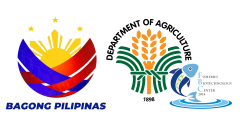The Biotech 101 Training and On-the-Job Training (OJT) programs are designed to build a strong foundation in biotechnology principles, with practical applications in fisheries and aquaculture research. These capacity-building initiatives aim to equip students, young researchers, and early-career professionals with the skills and knowledge necessary to contribute to the field of fisheries biotechnology.
Biotech 101 Training: Theoretical Foundations
This component serves as the introductory module to biotechnology, covering key concepts such as:
- Molecular biology basics
- Genetic engineering and gene expression
- Aquatic pathogen detection and diagnostics
- Reproductive biotechnology techniques
- Laboratory safety and biosafety protocols
The training typically includes lectures, case studies, interactive discussions, and demonstrations to ensure a well-rounded understanding of how biotechnology supports sustainable aquaculture and fisheries management.
On-the-Job Training (OJT): Practical Application
Following the Biotech 101 course, selected participants undergo OJT, where they are immersed in both laboratory and field-based hatchery environments. This dual approach ensures that trainees not only gain proficiency in biotechnology research techniques but also understand how these techniques are applied in actual aquaculture settings.
Laboratory Training
Participants work alongside DA-FBC researchers on actual projects, gaining hands-on experience in:
- DNA and RNA extraction
- PCR (Polymerase Chain Reaction) and gel electrophoresis
- Molecular diagnostics for pathogen detection (e.g., viruses, bacteria, parasites)
- Genetic characterization of aquatic species
- Broodstock selection based on genetic markers
- Laboratory data recording and analysis
This lab-based training hones the participants’ technical skills, attention to detail, and familiarity with protocols vital to scientific research.
Field Hatchery Activities
Beyond the lab, OJT participants are deployed to partner hatcheries and research stations where they engage in real-world aquaculture operations, including:
- Broodstock and larval management
- Induced breeding and hormone administration
- Spawning observation and egg collection
- Water quality monitoring and environmental assessment
- Feeding trials and nutrition studies
- Fish health assessment and biosecurity protocols
These activities give trainees firsthand exposure to how biotechnology supports sustainable aquaculture — from enhancing breeding success to preventing disease outbreaks. Working in the hatchery environment also helps develop participants’ skills in teamwork, adaptability, and field-based decision-making.
To know more about the OJT Program, just click the link or visit: https://nfrdi.da.gov.ph/internship/.
